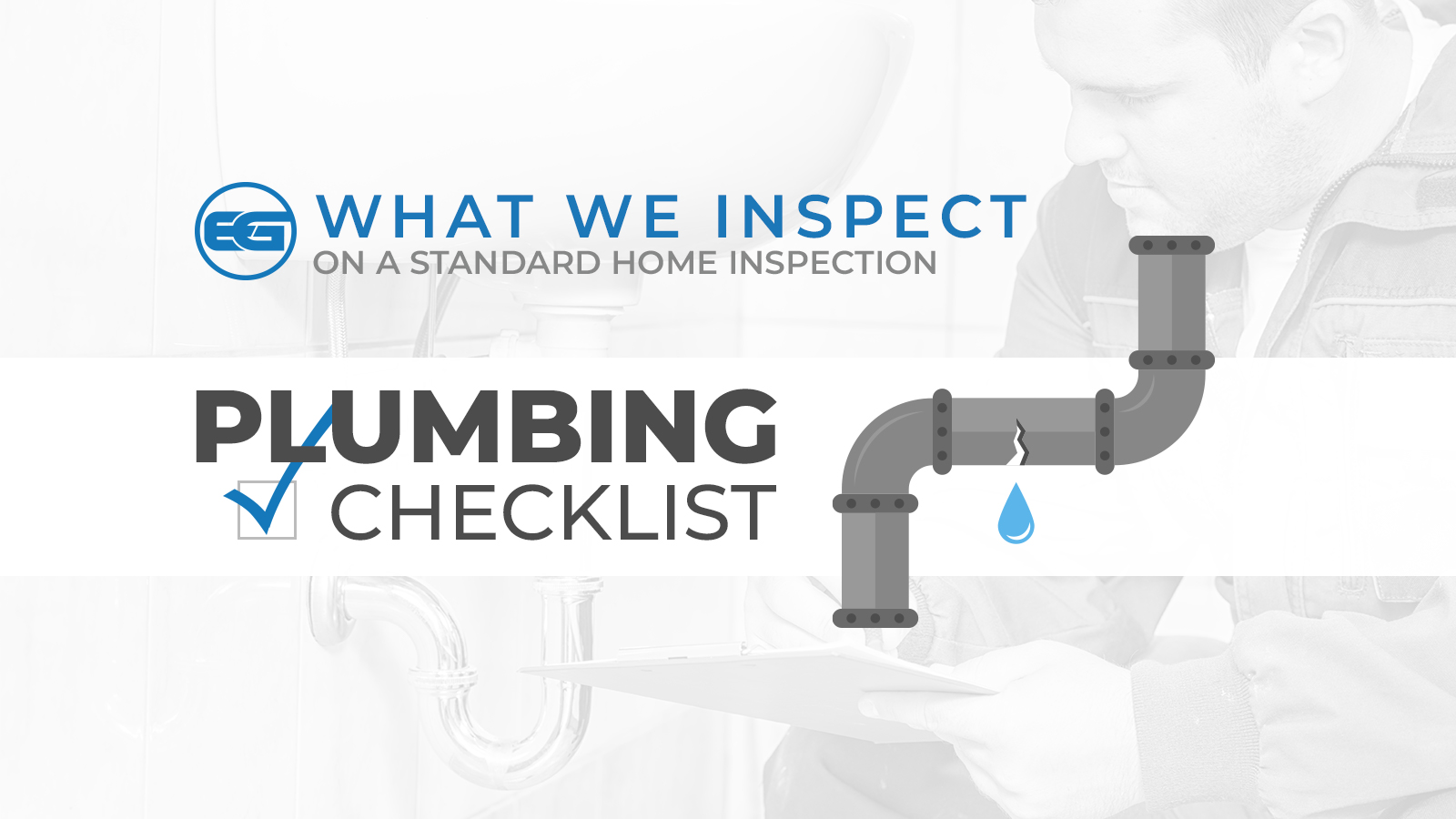It’s funny we never think about plumbing until there is a problem. From the kitchen sink, bathtub, and toilet, plumbing is a significant part of any home. It is so important to know what condition it is in!
At Elite Home Inspections, we follow InterNACHI, International Association of Certified Home Inspectors, guidelines.
Here’s What You Can Expect
Step One: Check the main water and fuel shut-off valves. Our inspectors then begin checking the water heating equipment, the energy source, venting connections, temperature/pressure-relief (TPR) valves, Watts 210 valves, and seismic bracing.
Next is the interior water supply. We run water in all fixtures and faucets. Then we flush all the toilets to make sure they are operating properly. If the sinks, tubs, and showers are draining, we will let you know. The first stage ends with inspections of the drain, waste, vent system and drainage sump pumps with accessible floats.
Step Two: We describe, based on observation, whether the water supply is public or private as well as the location of the main water and fuel supply shut-off valve. If there is a fuel storage system, we note it. When the water heating equipment capacity is labeled, we let you know.
Step Three: Our inspectors report what needs to be fixed. For example, we view the water supply in two fixtures running at the same time, looking for deficiencies. Were the hot and cold water faucets installed correctly? We inspect them and find out. We inform you of any active leaks in the plumbing, we observe. Finally, we check out the toilets for damage, loose connections to the floor, leakage, and tank components that do not work.
Lastly, we would like to let know what is NOT part of the plumbing inspection:
- Light or ignite pilot flames.
- Measure the capacity, temperature, age, life expectancy, or adequacy of the water heater.
- Inspect the interior of flues or chimneys, combustion air systems, water softener or filtering systems, well pumps, or tanks, safety or shut-off valves, floor drains, lawn sprinkler systems, or fire sprinkler systems.
- Determine the exact flow rate, volume, pressure, temperature, or adequacy of the water supply.
- Determine the water quality, potability, or reliability of the water supply or source.
- Open sealed plumbing access panels.
- Inspect clothes washing machines or their connections.
- Operate any valve.
- Test shower pans, tub and shower surrounds, or enclosures for leakage or functional overflow protection.
- Evaluate the compliance with conservation, energy, or building standards, or the proper design or sizing of any water, waste, or venting components, fixtures, or piping.
- Determine the effectiveness of anti-siphon, back-flow prevention or drain-stop devices.
- Determine whether there are sufficient cleanouts for effective cleaning of drains.
- Evaluate fuel storage tanks or supply systems.
- Inspect wastewater treatment systems.
- Inspect water treatment systems or water filters.
- Inspect water storage tanks, pressure pumps, or bladder tanks.
- Evaluate wait time to obtain hot water at fixtures, or perform testing of any kind to water heater elements.
- Evaluate or determine the adequacy of combustion air.
- Test, operate, open or close: safety controls, manual stop valves, temperature/pressure-relief valves, control valves, or check valves.
- Examine ancillary or auxiliary systems or components, such as, but not limited to, those related to solar water heating and hot water circulation.
- Determine the existence or condition of polybutylene, polyethylene, or similar plastic piping.
- Inspect or test for gas or fuel leaks, or indications thereof.
We know that is a lot of information to take in! But here at Elite Group Property Inspections, we spend the time to make sure you understand every step of the inspection process. We have dedicated inspectors that can answer any of your plumbing inspection questions. Contact us today for your next home inspection!!

